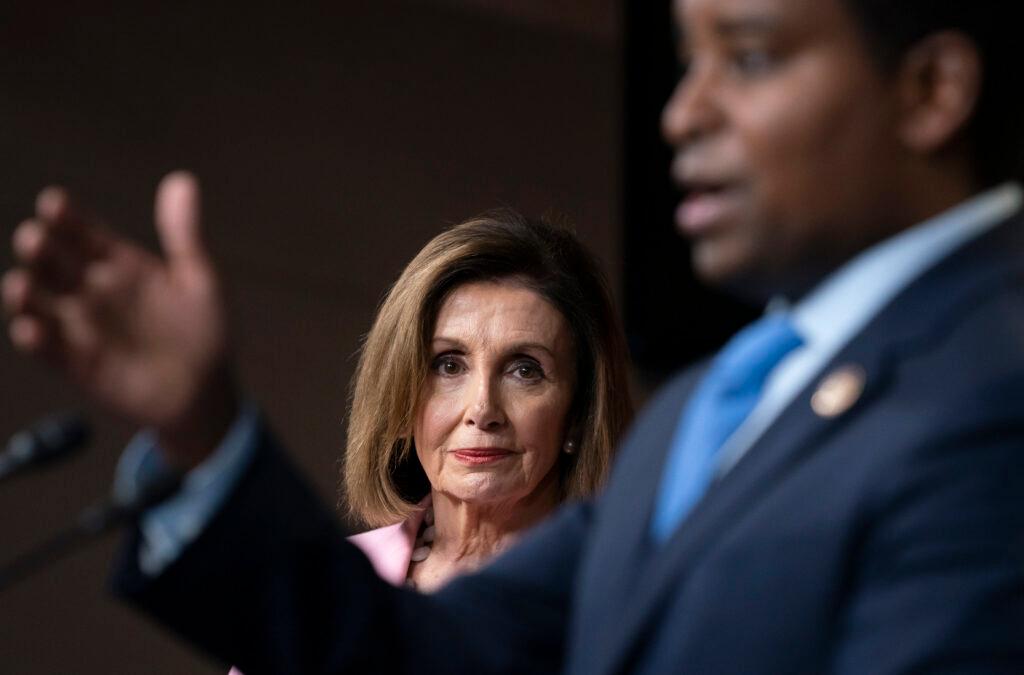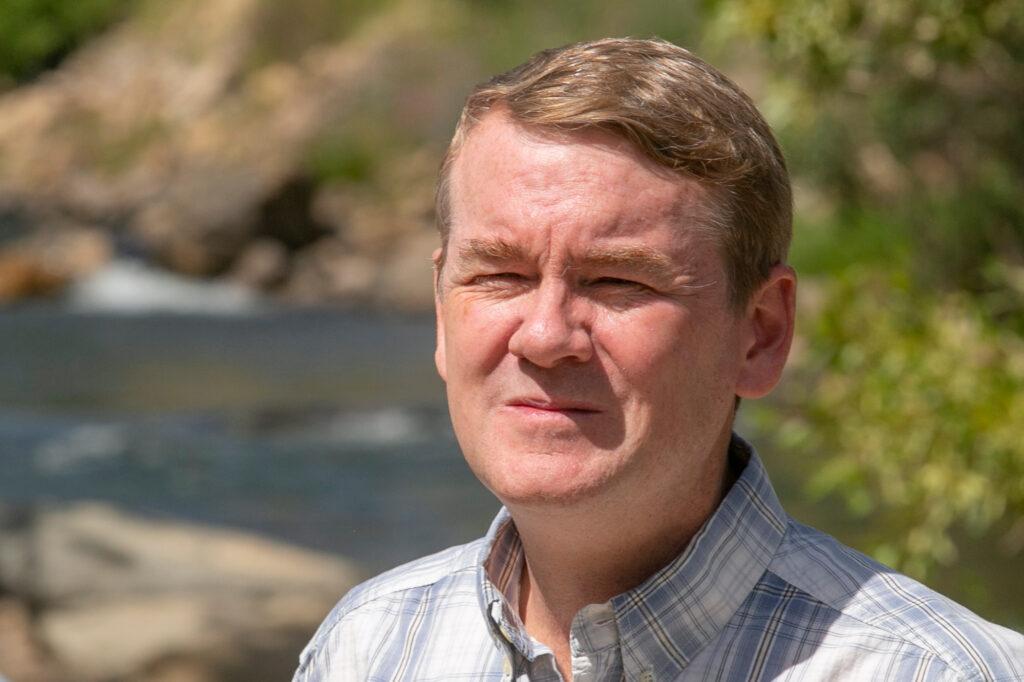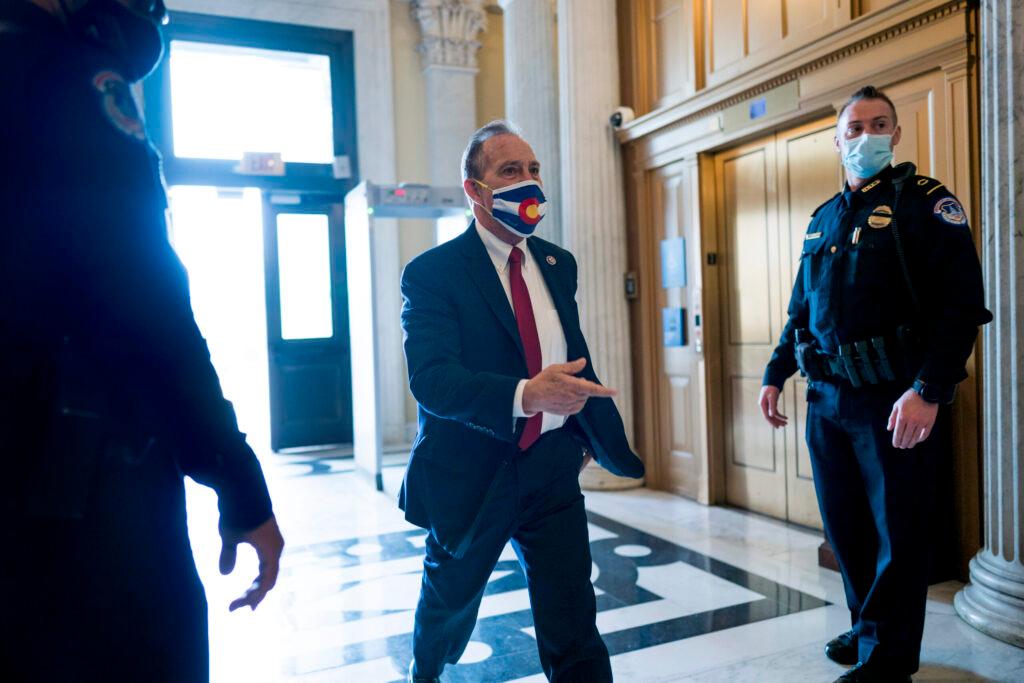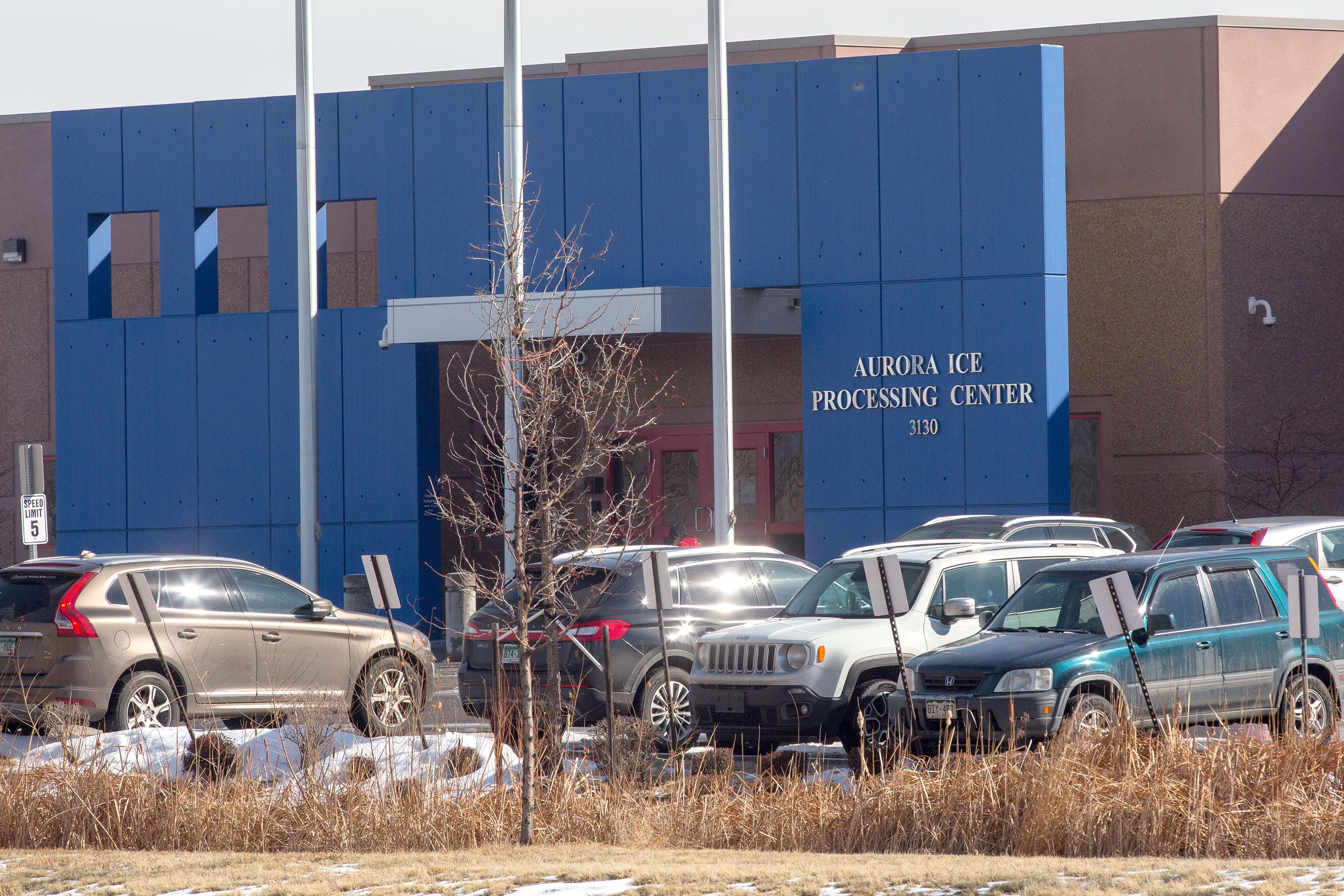
After weeks of negotiations on the massive bipartisan infrastructure bill and the upcoming Build Back Better Act, the members of the influential House Rules committee started taking friendly bets on when a deal might be done.
“We were actually taking over-unders as to when we would be finished,” said Rep. Ed Perlmutter, a Colorado Democrat.
Perlmutter guessed the finale would come at 5 p.m. on Nov. 5, the date the House had set for itself to get the infrastructure bill done. Another Coloradan, Rep. Joe Neguse, optimistically predicted 1 p.m. Both had been closely involved, along with other Democratic members of the state delegation, in talks about the bills.
But the real answer was closer to 10:30 p.m. (the winning guess went to a Washington Rep., according to Perlmutter.)
Biden signed that roughly $1 trillion infrastructure package on Monday. Now, under the deal negotiated on Nov. 5, lawmakers will focus on the second half of the president’s agenda, known as Build Back Better.
Colorado’s representatives have taken — or been given — some of the credit in crafting the bills and keeping them on track. And that influence may be tested as the caucus turns its attention to the thornier question of the Build Back Better Act, which would spend up to $1.75 trillion on social spending and climate change mitigation, among other priorities.
“It turns out that Colorado had an enormous amount of influence in the drafting of both the infrastructure bill and the Build Back Better bill,” said Sen. Michael Bennet, a Colorado Democrat, in an interview.
The two packages represent progress on several of Bennet’s priorities, most notably for continuing the expanded child tax credit that has sent thousands of dollars to millions of families, along with money for broadband internet and forest management.
“All of these were things I had developed in Colorado, working with Republicans and Democrats in rural and urban parts of the state,” Bennet said. “It was an opportunity for the president to be able to try to begin to stitch the country together again.”
Meanwhile, Rep. Perlmutter pointed to freshman Sen. John Hickenlooper as playing “a big role in getting the terms of the infrastructure bill together.” Hickenlooper was a member of the bipartisan group of 22 senators who negotiated the infrastructure bill.
On the House side, Neguse has been elevated as a dealmaker who got progressives on board with the final plan for the two bills — securing their votes to pass infrastructure while promising that Build Back Better would soon move forward.
"A large part of the work that we had been doing over the course of the last few weeks is really rebuilding trust," Neguse said in an interview. His message was "reminding everyone that we're all in this together and that we do have shared values and a shared purpose in terms of delivering on the president's agenda."
Neguse also is a driving force behind the proposed Climate Conservation Corps, a section of the Build Back Better bill that could dedicate $15 billion to employing people in jobs such as wildfire prevention.

Negotiating with Manchin
Perlmutter said that Biden’s agenda has been even more difficult to pass than some of the marquee legislation of the Obama era.
“The concerns are just that we have very slim majorities,” he said. “Any group of people can slow things down, so we’ve got to just make sure that everybody's on the same page.”
In recent negotiations, senators Joe Manchin and Kyrsten Sinema have emerged as the biggest obstacles within the Democratic caucus.
Hickenlooper said he had developed a rapport with Manchin, the conservative West Virginia Democrat who has heavily influenced the bills by threatening to withhold his vote.
“I have a good relationship with Joe Manchin and real respect. I mean, he's representing ... one of the most conservative states in America and in my experience, I think his values are deeply held. He's very frugal. I'm pretty frugal myself, so we share some of those qualities,” Hickenlooper said.
“We disagree on certain issues, but he's a listener. And so we'll see where we get to.”
Manchin’s opposition forced a paring back of Bennet’s child tax credit expansion, which is part of the still-in-progress Build Back Better bill. He continues to raise concerns about its total cost of the package and its potential impact on inflation.
In the bill’s current form, the larger payments to families would only be extended by one year, through 2022, rather than a previous proposal to continue them through 2025.
“I basically begged (Manchin) to give it a chance to see whether it worked — to see whether it was a real benefit to people in the ways that I thought that it would be, and (that) it already has been. And I know that the president himself made this a very big priority in his personal conversations with Joe Manchin,” Bennet said.
The expanded child tax credit has sent payments of up to $300 per child, per month, for some families during the pandemic.
The current proposal also would make a permanent change that Bennet favors. The child tax credits would become fully “refundable,” meaning that they could be paid in full to lower-income families who do not owe federal taxes. That change would continue even if the child tax credits are allowed to shrink back to their previous levels.

Local priorities
As with any major bill, Colorado lawmakers have touted the money and other perks they secured for various local causes. Neguse and Bennet successfully pushed for the infrastructure bill to include greater investments in forestry management to slow wildfires.
Perlmutter has pointed to funding for the government science cluster along the Front Range, including NREL, NOAA and NIST facilities, contained within the latest iteration of Build Back Better, along with about $30 million the Department of Transportation has owed to RTD, he said.
Meanwhile, Hickenlooper backed a law that asks states to voluntarily create more favorable electricity rates for electric-vehicle charging stations.
“So, there's a big science component, which will really help us be competitive with the rest of the world for a long time to come,” Perlmutter said.
Bennet also was a sponsor of the infrastructure package’s BRIDGE Act, which will send $40 billion for state and tribal governments to promote broadband internet access. He said it took inspiration from the city of Longmont and others with municipal internet networks.
Republican members of the delegation did not respond to requests for comment. A representative for the state Republican Party referred requests for comment to the Congress members’ offices.

Changing politics
The nation’s political environment has changed since Democrats started work on these bills earlier this year. The president’s approval ratings have dropped, and the off-year elections showed Republicans’ rising strength ahead of the midterms next year.
On top of that, Republicans argue that major government spending will only accelerate inflation, which recently hit a 30-hear high by one measure.
Biden and Democrats are pushing back, arguing that the legislation will help the economy and reduce the government deficit by partially undoing Trump-era tax cuts.
“It’s paid for — this investment in people is paid for,” Perlmutter said, adding that Democrats would “keep a close eye” on inflation. But major parts of the programs will expire in just a few years, meaning lawmakers could face new costs if they want to keep them going later.
And the Congressional Budget Office’s cost estimate appears likely to show that Build Back Better will add to the federal deficit.
The bills are sure to play large in next year’s election contests. Perlmutter, whose district has become more competitive because of redistricting, said he has a simple plan to sell the laws: He’ll focus on the new money for roads and bridges, a classic bipartisan spending priority.
“There’s a lot of road miles in there, there are a lot of bridges in there — there will be a lot of construction that will attach to all those road miles,” he said, referring to his newly larger district. “So I know whether you're a Democrat or Republican or an unaffiliated voter, you're going to appreciate better roads.”
However, the American Action Network, a Republican-aligned outside group, has named Perlmutter to a list of nine Democrats it’s targeting with advertising critical of the Build Back Better Act.
“Tell Ed Perlmutter to oppose Nancy Pelosi’s tax and spending scam,” the ad closes.
That next spending package will see more negotiations in the days and weeks to come. Democrats hope that completing the legislation will boost voters’ enthusiasm ahead of next year’s elections.
“I hope people are going to be able to see that and say to themselves, ‘We can't give up on democracy,’” Bennet said, arguing that voters want to see their government achieve something big.
It’s unclear what further legislation the party might tackle before the next election season. Bennet said Congress still could pass a bill meant to boost economic competitiveness with China, and he will “hold out hope” for progress on a federal voting rights bill.
Editor's note: This article was updated at 9:04 a.m. on Nov. 19 with comment from Rep. Joe Neguse.









